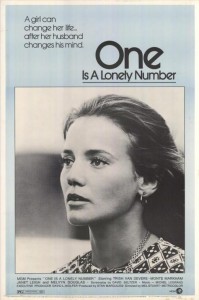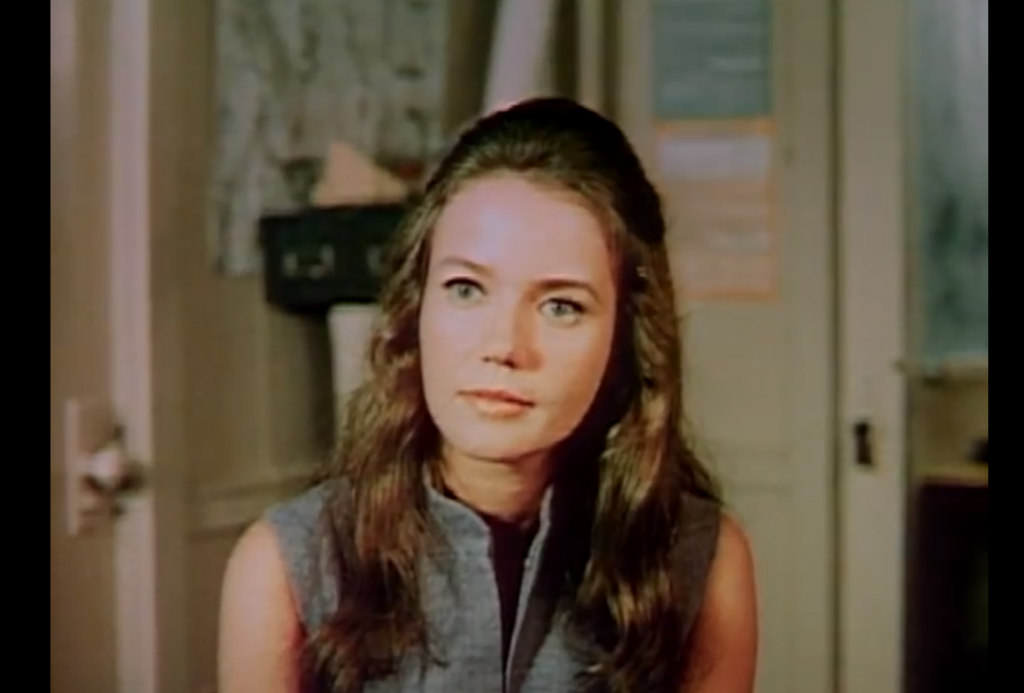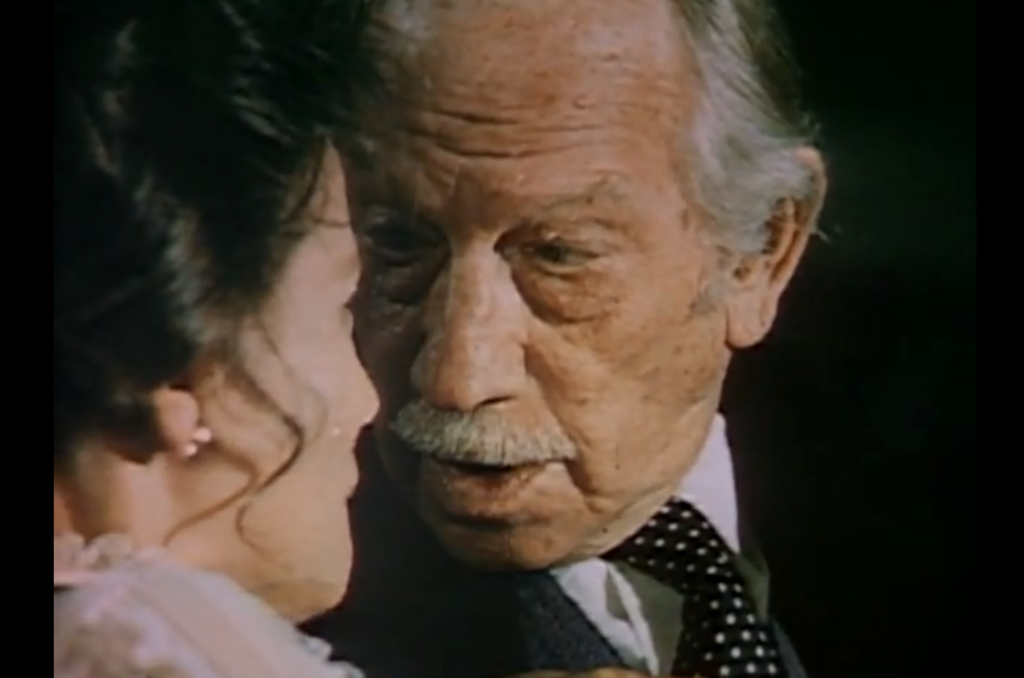“Aimee, you have got to snap out of it: you’re not the first girl to go through this, and you’re not going to be the last!”
|

Synopsis:
When her husband (Paul Jenkins) suddenly decides to divorce her, a woman (Trish Van Devere) struggles to create a new life for herself.
|
|
Genres, Themes, Actors, and Directors:
- Divorce
- Feminism and Women’s Issues
- Melvyn Douglas Films
Review:
This hard-to-find melodrama — made shortly before Martin Scorsese’s Alice Doesn’t Live Here Anymore broke ground in American feminist cinema — is earnest and well-meaning but ultimately a disappointment. While Van Devere (George C. Scott’s wife) is an appealing heroine, and tries her best with the material she’s been given, she can’t quite overcome either the pedantic script or the amateurish performances of most of her co-stars. The best, most natural scenes involve Melvyn Douglas as a widowed grocer who helps Van Devere to break down her shell of defensiveness and accept her loss (what a breath of fresh air his presence is!). While the script finally begins to build some steam towards the end — when Van Devere takes a chance on love with a mysterious stranger (Monte Markham) — it can’t quite make up for the pedestrian narrative that’s come before.
Redeeming Qualities and Moments:
- Trish Van Devere as Aimee

- Melvyn Douglas as Aimee’s widowed grocer friend

Must See?
No, but Van Devere and Douglas make it worth a cursory look if you stumble upon it on television. Listed as a Sleeper in the back of Peary’s book.
Links:
|



2 thoughts on “One is a Lonely Number (1972)”
First viewing. Not a must.
But I’m glad that the assessment makes a point of noting Scorsese’s ‘Alice Doesn’t Live Here Anymore’…as that adequately indicates the shortcomings of this film.
When it was made, we didn’t have the Lifetime Movie Channel. Now we do. Which kind of makes this film irrelevant. (Not that I’m praising Lifetime…)
The script is patchwork stuff – combined to illustrate how Van Devere will get on with her life, post-divorce. It also appears to be very anti-men (augmented by the Janet Leigh character – who gets some lively lines).
I actually find Van Devere’s character problematic. Granted, in the opening scene both people in the break-up come off as fairly bizarre. But post-break-up – and though it’s likely an accurate depiction – Van Devere’s Aimee comes off as someone who has had no close relationship with a man outside of her husband, is ill-equipped for dealing with another male, and is generally suspicious and defensive. (Unless, of course, she’s dealing with someone like Douglas, who is old and non-threatening.) The effect of all of this is not exactly satisfying in dramatic terms.
Not a must, and actually a pretty mediocre movie. I usually do a pretty good job of removing dated elements knowing a film can be a product of its time.
I do get the period (I was 8 when this film opened) – divorce rates increased coupled with women’s independence rising. This film predates some way better 70’s films dealing with divorce or disintegration of a marriage. The aforementioned “Alice Doesn’t Live Here Anymore”, the great “Scenes From a Marriage”, “Kramer vs. Kramer”, etc.
Yet – the entire production is a downer. Music that sounds like “Summer of 42” gone bad (same composer). Romance scenes using Bossa Nova music that seem out of “Love, American Style”. And cliched characters.
I actually was thankful for anytime Melvyn Douglas showed up!
Trish Van Devere is pretty good, but the material doesn’t help her. The film does attempt to show how ill equipped woman devoted to their husband were to enter life on their own. It tries to show a couple of strong women, but they aren’t too likable. The first decent romantic interest turns out to be married.
Hurt after hurt is brought on her – as Mr. Csontos implied…very Lifetime Movie like!
Dated is a bad way.
Fun little bit of trivia….the Sherman Cooke character who got her job at the pool (and eventually tried to sexually assault her) is played by the “most interesting man in the world” of Don Equis Beer fame (Jonathan Goldsmith who went by Jonathan Lippe earlier in his career). The Don Equis guy would not have approved.